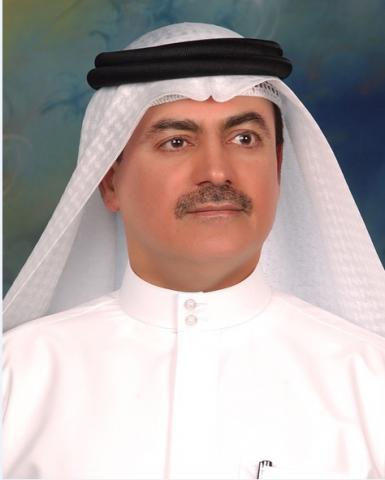Published 9 years ago
Last updated 9 years ago

H.E. Dr. Al Amiri: ‘Ministry of Health & Prevention has approved a new drug for treatment of chronic lymphocytic leukaemia’
The UAE’s Supreme Committee for Drug Registration recently convened a meeting at the Quality Control Laboratory located in the Dubai Biotechnology and Research Park (DuBiotech) in the presence of senior representatives from the UAE Ministry of Health and Prevention (MOHAP), Health Authority Abu Dhabi (HAAD), and the Dubai Health Authority (DHA) along with leading universities in the country. The session was headed by H.E. Dr. Amin Hussein Al Amiri, Assistant Undersecretary for Public Policy and Licensing of the Ministry of Health & Prevention and Vice Chairman for Supreme National Drug Registration. The Committee approved the registration of 69 new drug classes based on global clearances, following the completion of various technical requirements. It has deferred 11 varieties of drugs for lack of probative safety of use and marketed in the reference countries, as well as rejected four varieties of medicines for non-conformity with the required quality standards. The approved drugs consist of a number of therapeutic medicines for treatment of blood pressure, diabetes, chronic obstructive pulmonary disease and women ailments as well as four biological drugs, including polio vaccine from a qualitative 1 & 3, and medicines for diseases such as leukaemia. Following ratification by the US Food and Drug Administration (FDA), the UAE Ministry of Health and Prevention has registered a new drug that can treat three types of leukaemia at once, notably Chronic Lymphocytic Leukaemia (CLL). CLL is a serious type of cancer that affects the blood and bone marrow and is caused by the occurrence of a genetic mutation in the DNA cells, deteriorating the patient’s condition slowly over time. The most prominent symptoms of this condition include fatigue, fever, pain in the upper left side of the abdomen which may be caused by an enlarged spleen, night sweats, and weight loss with a recurring infection. High-quality manufacturing is the foundation of good pharmaceutical products H.E. Dr. Al Amiri emphasized that the Ministry only approves and registers drugs that are manufactured by accredited pharmaceutical companies and meet all the required international standards. He added that the Ministry will conduct inspections on local, regional and international pharmaceutical companies to ensure their conformity with international safety standards as well as instructions issued by the World Health Organization (WHO) and other international authorities such as the FDA and the European Medicines Agency. The committee has approved 11 pharmaceutical factories and delayed the approval of five others operating in Greece, Turkey and India, while two factories of an Indian company were suspended for non-conformity with international standards. New pricing regulation The Assistant Undersecretary has pointed out that the Committee discussed the prices of 132 drugs and approved the re-pricing of another 14 drugs in line with patients’ right to obtain secure, inexpensive and useful medicines. The different economic determinants of prices between the GCC from the level of the cost of the public living and consumption (due to the demographic distribution variation) and purchasing power, and the cost of medicine prices linked to other commodities, are not isolated commodity market factors but applies all that apply on other goods. The WHO has identified the purchasing power of all countries; for instance, the UAE has a better purchasing power than other Gulf countries which is a clear indicator of the disparity in prices. State support for similar & innovative medicines Both pharmaceutical products and alternative innovative products contain the same active ingredient and are manufactured without a license from the research company for product innovation. When international pharmaceutical companies discover a new drug, they register the name and give it a brand name in addition to the scientific name of the drug. The company which discovers and produces it has the intellectual property rights to patent it, with no other firm allowed to manufacture this medicine for a certain period of time, usually 20 years. However, after the expiry of the ban, any pharmaceutical company then has the right to produce the same drug, but under a different name. H.E. Dr. Al Amiri said: “The phenomenon of using medication without any checks of medical or scientific rules poses a serious threat to the individual and society in terms of health and economics. The use of drugs without any medical or scientific regulation can lead to serious complications for humans. Note that the number of drugs that have been registered by the Ministry to date is 8,327, including 5,218 in unprecedented class and 3,109 in innovative class.” Methods of dispensing drugs in the UAE The Committee refused to amend the method of dispensing registered treatment medicine that belong to the Ibuprofen group of non-steroidal anti-inflammatory drugs (NSAIDs). This medication is used for the treatment of pain, fever, and inflammation and the Committee will continue its supermarket sales. H.E. Dr. Al Amiri concluded that the Ministry will follow up and monitor global updates in the pharmaceutical field continuously, ensuring that the systems are compatible with the latest developments in the pharmaceutical sector, both in technical and organizational terms. He reiterated that the Ministry will develop and modernize the rules of drug pricing in the UAE to ensure harmony and balance between providing good medicine at a reasonable price and availability. It will also take advantage of economic studies and systems developed for pricing processes that ensure the availability of medicine in the state.Categories
- Log in to post comments